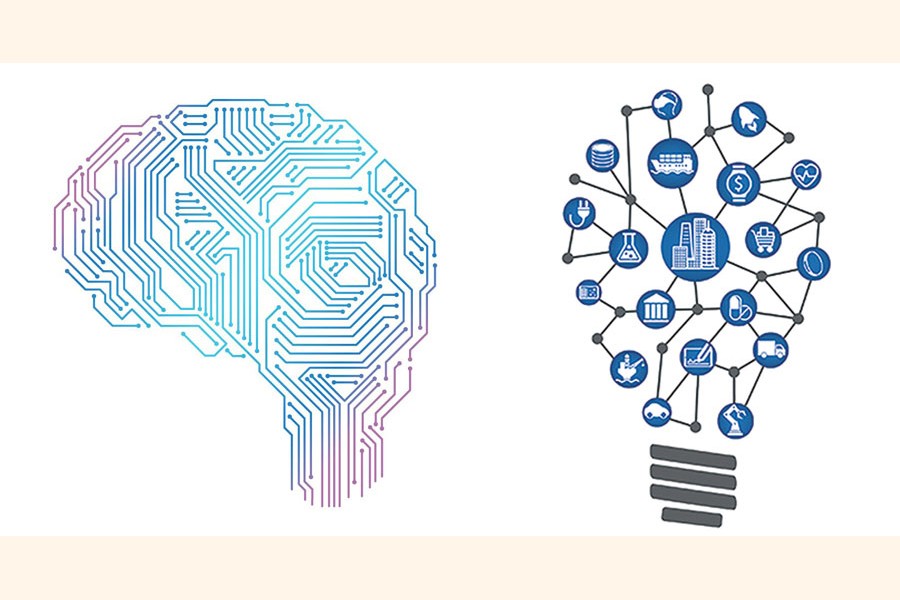Bangladesh and Russia have an enormous potential for deepening cooperation in the innovation-driven high-tech sector, for example, implementing joint projects in the field of Artificial Intelligence (AI) and the Industrial Internet of Things (IIoT), says Pavel Rastopshin, Managing Director of Finnish-Russian AI and IIoT solutions firm ZYFRA.
Rastopshin responded to some media queries about AI and IIoT. One such question was asked relating to the scope of cooperation between Bangladesh and Russia in the field of innovation in general and on the Industrial Internet of Things in particular.
He said Bangladesh is of great interest to companies in the field of Industrial Internet of Things. Russia is building Bangladesh's first nuclear power plant at Rooppur and participating in drilling wells to produce gas. Such projects are expected to give a major boost to the AI industries in both countries.
Innovations should become a point of growth of Russia-Bangladesh relations, he said. "We see significant potential for introduction of AI and IIOT in such industries such as machinery, metallurgy, chemical industry, mining and the oil and gas sector."
"One of our solution 'MDCplus' is a real-time machine monitoring and manufacturing data collection (MDC) system" with hundreds of customizable reports and charts that can be used to track jobs, parts, operations, work centres, Overall Equipment Effectiveness (OEE), scrap, costs, downtime and people.
This is a crucial task and the initial step towards Industrial Internet of Things. Precise control of the implemented technological process will further improve machine performance by 8-12 per cent. "We are currently working with India, China, Chile, Peru, Singapore, Bulgaria and Romania", he added. "This or next year we hope to see first projects in this area being implemented jointly with Bangladesh."
About AI implementation in mining, he said in South Asia the number of fatalities in the mining sector is very high. In India, data tabled in its Parliament revealed that 377 workers involved in mining of coal and oil were killed in accidents between 2015 and 2017. Of these deaths, 129 occurred in 2017 alone. As many as 145 died in 2016, while the corresponding figure for 2015 was 103. Coal mines have accounted for the highest number of casualties due to accidents in mines. Of the 377, more than half, 210, were killed in coal mines.
For Bangladesh, the figure of fatalities in occupational accidents till May 2015 was around 600. And 488 workers were injured in these accidents, a report by the Occupational Safety, Health and Environment Foundation (OSHE) said.
In an end-to-end smart mining, you remove all personnel from autonomous operating zone and leave robots to themselves. If you need a person or vehicle there, you equip them with trackers, and every autonomous truck watches them carefully. This could reduce fatal cases down to zero, he said.
The economic and ecological impacts are also positive, as the use of self-driving vehicles and smart machines allows to cut costs, it also allows to cut emissions. Industrial sector is conservative, but as the benefit is obvious, it is not only about the industry. It is also about the society and "we shall support any innovation that can help us to save lives and environment," he commented.
He was asked whether developing countries like Bangladesh is ready for deploying projects on Industrial Internet of Things. In reply, he said mass application of IIOT technologies is possible because the costs of the necessary infrastructure do not constitute a significant load. There are approved IIOT solutions that increase labour productivity for light industry.
In India and Bangladesh, automation does not mean job cuts. In the current situation, there are not many examples of the introduction of completely unmanned running. Such technologies are quite expensive and require regular maintenance costs. Automation of production can actually lead to a reduction in employment, especially in highly hazardous areas (toxic, high-temperature, traumatic, etc.), but in this case, released workers can also be used at checkpoints to monitor the operation of the existing equipment.
In addition, automation will lead to a reduction in the so-called "routine" occupations in those industries where artificial intelligence will replace a person in the performance of repetitive tasks. At the same time, new industries will appear and minimise the effects of job cuts, he opined.
Artificial Intelligence is emerging as a money saving answer to climate change and improving efficiency of the oil and gas sector.
Global economic losses caused by climate change could cost $23 trillion, if no steps are taken to mitigate the climate change. It has been predicted by a global group of 415 investors managing $32 trillion in assets. These investors in their combined statement have said that the gap between real-world emissions and levels required to keep global warming below 2 degrees must be closed by 2030.
AI can help in reducing the polluted emissions by about 20 per cent. AI-driven solutions for heavy industries have proven the effect of 5-30 per cent reduction depending on the industry.
The United States with Saudi Arabia and Russia together occupy over 40 per cent of global hydrocarbon production and carbon emission. Annual industry losses due to wellbore instability are estimated to be more than $14 billion.
An AI-based drilling optimisation solution alone allows increase in oil production up to 20 per cent and decrease in non-productive time by 5-7 per cent, while cutting the losses up to 35 per cent. Some estimates show that more than 94 per cent of the wells globally will require artificial lifts at some point of time in their asset life cycle. The raw estimation of how much AI solutions could save to global economy could reach $ 5.0 trillion by 2030 due to reduced carbon emission.


